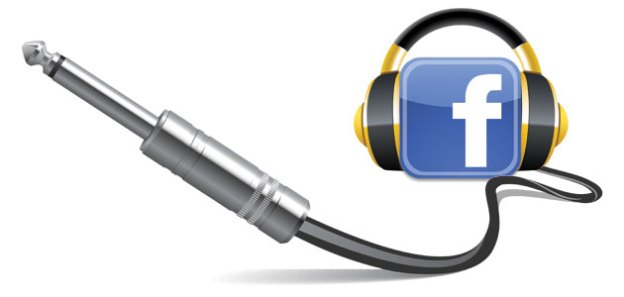
Even before Spotify’s US launch, the Web has been buzzing about a possible integration with Facebook that would part of its rumored forthcoming media dashboard. Since then, details have been close to nonexistent with the exception of some uncovered code revealing the site is or was working on something music related and the rumors that it will partner with MOG and Rdio as well as Spotify.
But given that Facebook’s f8 conference is mere weeks away, some new insights on the music service are naturally surfacing. An insider tells TechCrunch that the upcoming application will include a feature called “scrobbling,” which will sound familiar to Last.fm users. Scrobbling will pull what you’ve listened to and post it to your profile automatically. Given how public this makes your music listening history, we’re assuming there will be an easy way to disable this.
The more important element we’re hearing about is content resolution. The Facebook music dashboard will also feature a track unification tool, which will basically work to connect the various streaming services that are to be integrated into the site. If one of your Facebook friends posts a song or playlist, regardless of what integrating client they are using, you can stream it via your music service of choice. Which is obviously a big deal, and would make using Facebook as your primary streaming source an incredibly attractive option. Not all of your friends are using MOG or Rdio or Spotify, but it’s safe to say that nearly all of them are on Facebook. Sharing and accessing music without having to coordinate accounts would be a major selling point for the application.
So now that we know (or think we know) what Facebook will reveal at its f8 conference, we’ve got a few requests of things we’d like to see in the music dashboard.
- We’ve heard rumors about what services are going to be involved, and names have been names. But one big one that hasn’t been mentioned is Amazon, and it would be a good choice. We’d like to see a storage service included in the mix, and given that iCloud hasn’t launched and Music Beta by Google hasn’t been that widely adopted (and Facebook doesn’t really play nice with those two) Amazon seems like an ideal fit.
- The desktop software team over at Facebook has been up to something, and maybe it’s a desktop client for the music service. And maybe that’s only the beginning: We’re hearing more and more that Facebook is trying to diversify into more of a multimedia corporation. This is nothing more than musing, but there’s a possibility the site will do what it did with Messenger and create a stand-alone app for its music streaming client. This would probably be further down the road, however, and we don’t expect to hear anything about it at f8.
- One of the things we’d like to see in Spotify is some sort of chat functionality or ability to see what our friends are currently listening to versus only their public playlists. It would be impressive if Facebook could tie listening into chat so that you and yours could simultaneously listen to a playlist.
These are all wish-list items, but we’ve come to expect innovative social ideas from Facebook. That said, the notion that Facebook is feeling all kinds of pressure to stay on top persists, and has led to what some have called underdeveloped product launches. We’ll find out soon enough at f8 September 22.


